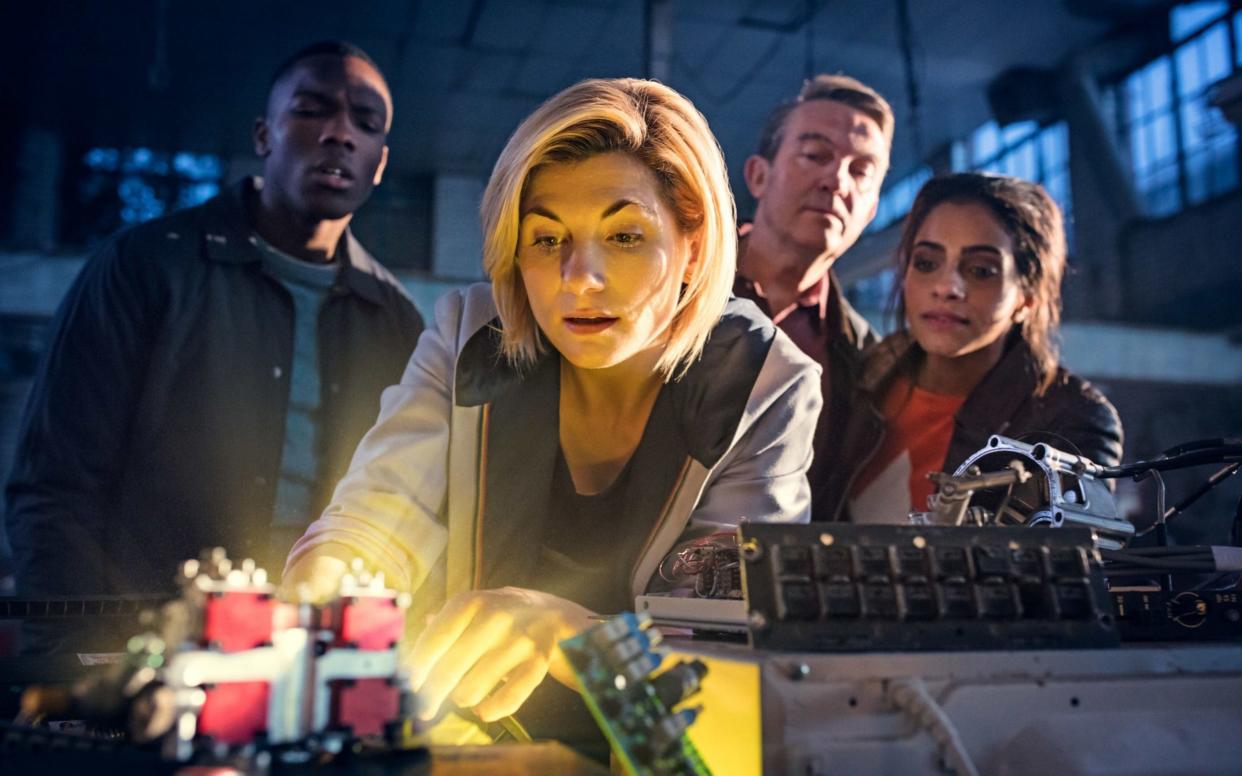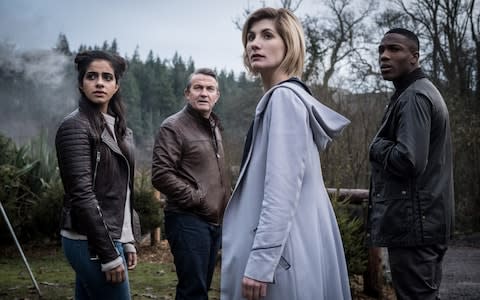Doctor Who: The Woman Who Fell To Earth, first-look review: too dark and dour, but Jodie Whittaker is a delight

When Jodie Whittaker was announced as the 13th Doctor and the first female occupant of the Tardis, many fans raised their ire on social media, saying that the series was now ruined, that the Doctor should be a Time Lord, not a Time Lady. Having seen the first episode of this new series, it’s obvious that this vocal minority are wrong.
Whittaker is a breath of fresh air: a talented, emotionally engaged actress who brings warmth and humanity to a show that was largely in danger of disappearing up its own black hole. From the outset, she proves to be a charismatic presence, righting alien wrongs in the gleaming metropolis of Sheffield (of all places).
She also shows versatility: one moment she’s trying to make sense of her regeneration, producing a stuttering fusillade of unconnected words like a Beckett heroine; the next she’s down-to-earth, tempting her new friends with a “cuppa and a fried-egg sandwich”.
Likeable, funny, as brave as a lion (the denouement sees her doing a death-defying stunt), Whittaker’s Doctor has ushered in a new era for this 55-year-old show, with a remarkable level of assurance. In her hands, a female Time Lord (or is that Time Lady?) feels perfectly natural.
She's well served by the supporting cast too. There’s Tosin Cole as Ryan, a dyspraxic lost soul in need of a confidence boost; Yasmin (Mandip Gill), a sensible policewoman; and Bradley Walsh’s Graham, a down-to-earth former bus driver (and Ryan’s step-grandfather), who’s set to be the series’ sceptic-in-chief.
They’re an odd bunch - but then Doctor Who has always been about celebrating the outsider, overcoming differences. These are characters with whom you'd definitely want to travel through space and time.
And yet: in other ways I have reservations about this new series, the first to be run by Chris Chibnall (who was responsible for Broadchurch). The first episode, The Woman Who Fell To Earth, felt very dark and dour. Yes, there was some humour in the dialogue, but the overall tone was too sober for a family show. I counted five deaths in this opener, and some time was given over to touchy-feely navel-gazing on mortality and knife crime, which would have been more appropriate in a community-theatre workshop.
Doctor Who’s ratings had dipped significantly in recent years, and some critics attributed that to the fiendishly clever (perhaps clever-clever) scripts that were offered up under the show’s previous head, Steven Moffat. Chibnall has calmed things down with some much-needed accessibility, but still there's something missing.

And that something is razzle-dazzle. When the show was rebooted magnificently by Russell T Davies in 2005, there was a genuine sense of wonder, of magical possibilities. Davies knew how to entice children (and the inner-child of us adults) with a series of adventures that glowed with colour and buzzed with excitement. Chibnall’s more thoughtful approach isn't necessarily a wrong turn, but I do miss Davies’s gift for intelligent populism.
There's also a distinct lack of interest taken in the show’s heritage, which may disturb fans. Although Whittaker’s performance brilliantly captured the essence of previous Doctors, the overall effect of the show was sometimes to feel like a trip too far from the familiar. The Tardis is yet to reappear, and Chibnall has said categorically that we won't be treated in this series to as much of a whiff of a Dalek. Doctor Who is a show that in part thrives on its heritage; it needs to be embraced, not hidden.
It's just been announced that the first episode will air at 6.45pm - nestled in between Countryfile and the Strictly results. After this compelling but austere opener, families may be in need of some light glitterball relief.
Let’s just hope that Whittaker’s chutzpah can carry us through to Christmas.
Doctor Who starts on BBC One on Sunday October 7 at 6.45pm
Solve the daily Crossword

